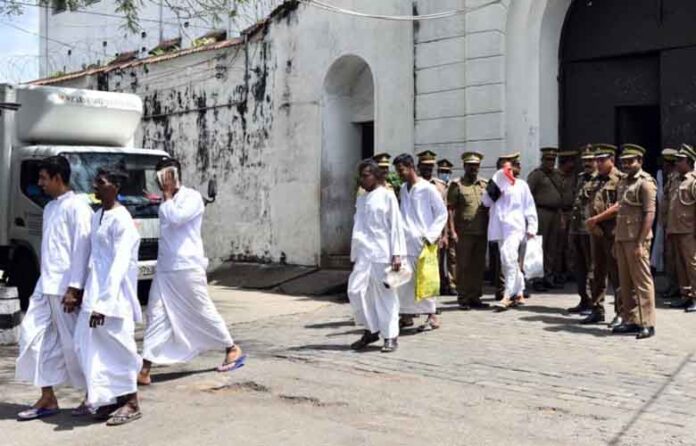Sri Lanka is launching an ambitious vocational training program targeting prison inmates, marking a transformative shift in the country’s correctional strategy from punishment to rehabilitation. With a budget allocation of Rs. 100 million (approximately USD 330,000), the initiative is designed to equip prisoners with practical skills, paving the way for their reintegration into society after completing their sentences.
The program, announced by Jagath Weerasinghe, spokesperson for the Department of Prisons, represents the first nationwide effort of its kind. “This is a major step forward in reforming our correctional system,” Weerasinghe said. “The goal is not just to punish, but to give inmates the tools to rebuild their lives once they’re released.”
Sri Lanka’s 36 prisons currently house around 34,000 inmates, a significant proportion of whom are incarcerated for drug-related offenses. The new training program will offer instruction in carpentry, plumbing, agriculture, tailoring, and information technology—skills that are in high demand in both local and international markets.
Authorities believe the initiative will not only provide inmates with marketable skills but also contribute to better prison discipline and lower repeat offending rates by instilling a sense of purpose and hope. Collaboration with private sector companies and NGOs is also in the pipeline, aimed at facilitating job placements and mentorship opportunities for inmates once they are released.
“This represents a shift from a punitive approach to a rehabilitative one,” Weerasinghe added. “We hope it will act as a model for broader reforms across the criminal justice system.” The program will be piloted in select prisons later this year, with plans for expansion based on its impact and demand.
One such example of successful collaboration already in motion is the partnership between the Prisons Department and P.G. Martin Industries (Pvt) Ltd—a local footwear and leather goods manufacturer. Chairman and Managing Director P.G.D. Nimalasiri, a former President of the Sri Lanka Footwear and Leather Products Manufacturers Association, said that his company has been involved in vocational training for prisoners since 2016.
Currently, around 40 inmates at Welikada Prison in Colombo are participating in a six-month training program provided by senior craftsmen from the company. “We are not just teaching them a skill; we are helping them build a future,” Nimalasiri stated. “They learn the entire manufacturing process and, upon completion, begin earning a monthly remuneration. This isn’t charity—it’s recognition of their effort and commitment.”
Nimalasiri also emphasized the urgent need for skilled and unskilled labor in industries like leather production, where workforce shortages persist despite high national unemployment. He advocates for greater investment in AI, training, and upskilling across the sector.
The prison vocational training program is thus not only a progressive step in criminal justice reform but also a potential solution to the country’s skilled labor shortages. By offering inmates a second chance and addressing workforce gaps, the initiative holds promise for long-term social and economic impact.
